Tortured and sold: Refugees in Libyan captivity
-
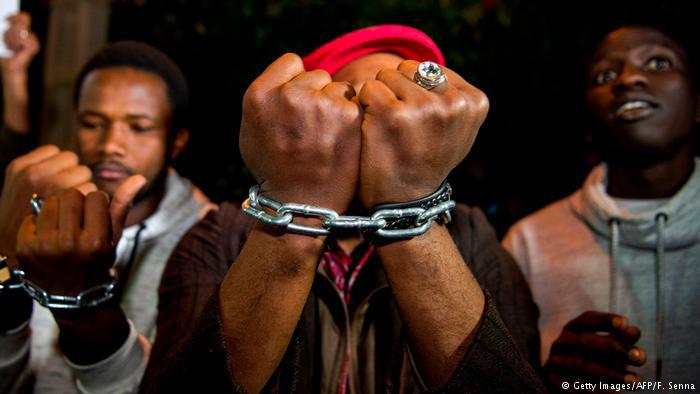
Major outcry: recent televised images of alleged human trafficking and slave markets featuring African refugees caused worldwide horror. After the pictures circulated on the Internet, demonstrations were staged in several African countries against the conditions in Libyan refugee camps. In Morocco, young people protested outside the Libyan embassy demanding humane conditions and an end to the alleged slave trade in the Maghreb -
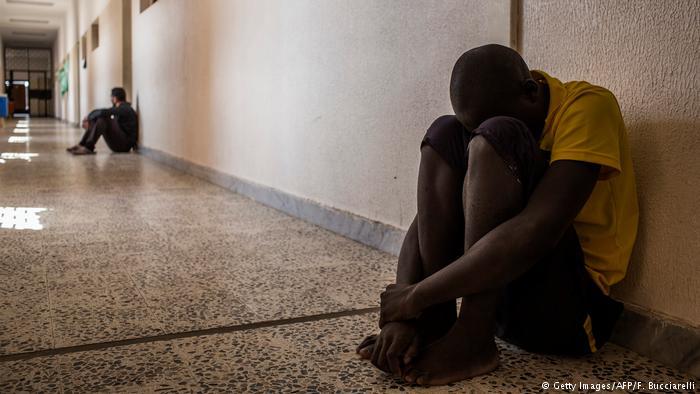
Demands for an investigation: following the revelations, the internationally endorsed Libyan unity government announced that it would set up a commission of inquiry. It also pointed out that the country has been descending into chaos ever since the fall of ruler Gaddafi and is not the source but the victim of illegal migration -
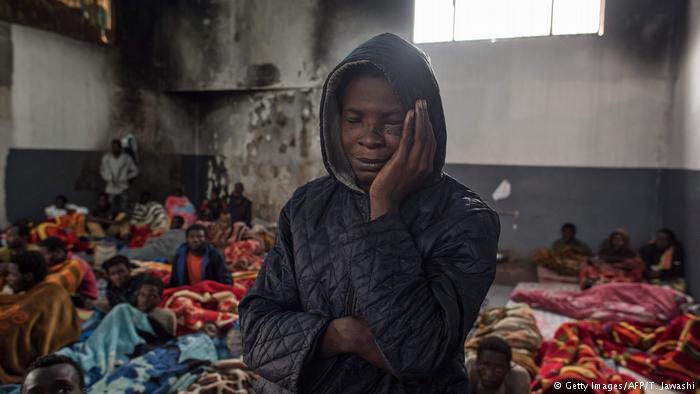
Fears for survival: en route to Europe, many migrants are exposed to the horrors of torture and human trafficking in Libya. The United Nations has finally woken up to the situation. Last year, the UN, the EU and some African states announced their intention to return 15,000 refugees to their countries by the end of 2017, for example to Nigeria, Gambia and Guinea -
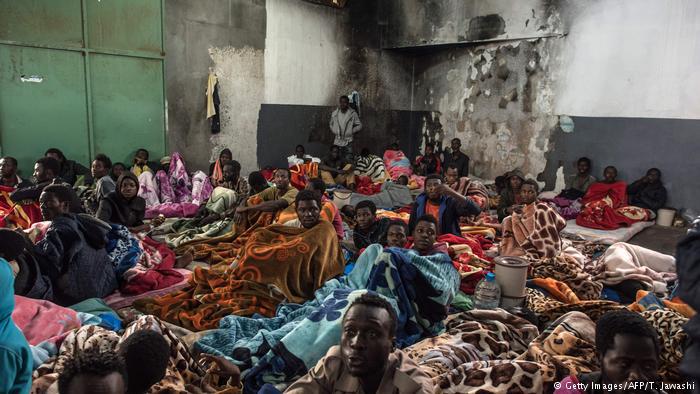
Inhuman conditions: refugees in Libyan reception camps, crammed together in confined spaces and under catastrophic hygiene conditions. It is estimated that between 400,000 and one million migrants are stuck in the most appalling conditions in the violence-torn North African country, hoping for a passage to Europe. According to Libyan sources, there are currently around 20,000 people in the camps -
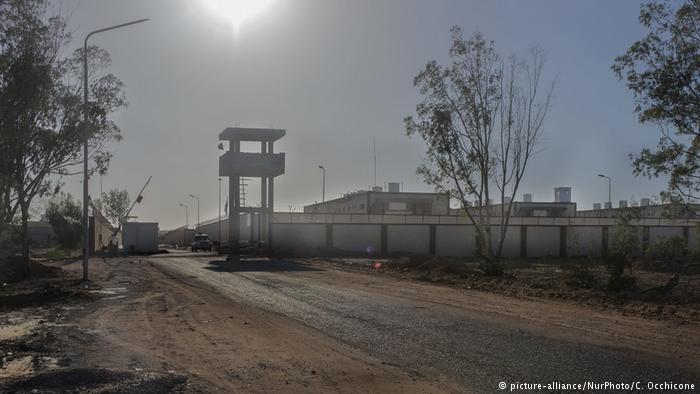
Prisons turned refugee camps: the internationally endorsed Libyan unity government has signed an agreement with the EU to prevent refugees with the help of the Libyan coast guard from coming to Europe via the Mediterranean. To this end, illegal migrants are to be cared for in future in "adequate reception facilities" in Libya, such as this one at Misrata. It was previously a prison -
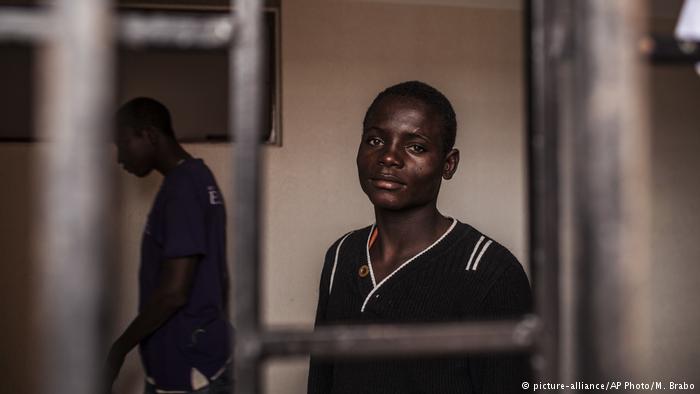
The dream of a decent life and work in Europe: this young man is stuck in a prison camp 50 km from the coastal town of Misrata. Many migrants come to Libya in order to work, others intend to take the life-threatening route to Europe via the Mediterranean from there. Despite the slim chance of success, thousands of Africans are still willing to risk the dangerous journey to Europe -
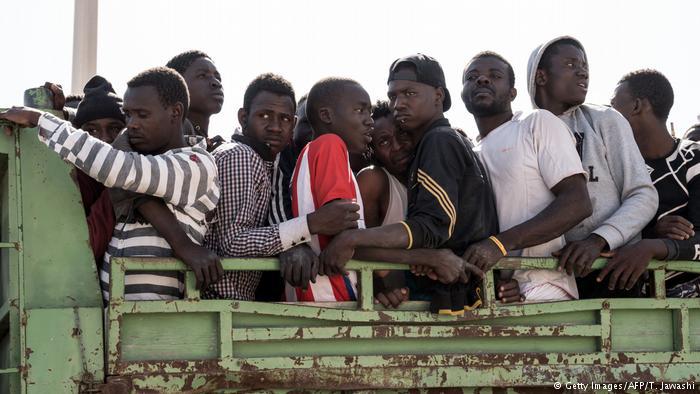
To the coast and no further: time and again young Africans are picked up by the Libyan coast guard and prevented from crossing to Europe. These illegal migrants are taken to a camp 45 kilometres from the coastal city of Tripoli. The EU-Libya agreement, which aims to close the so-called central Mediterranean route, has been heavily criticised by human rights organisations
https://qantara.de./en/node/22282
Link
To all image galleries
